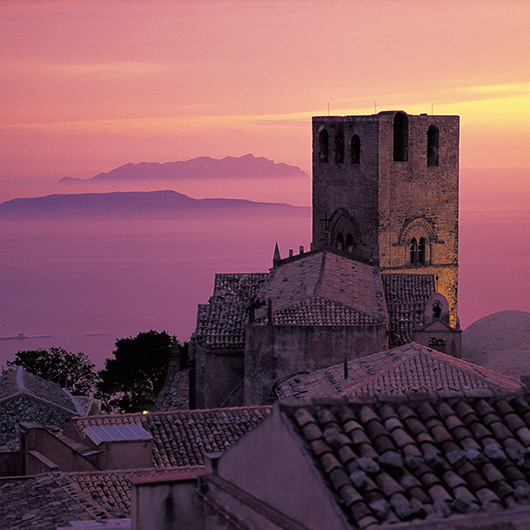doc erice

In the heart of Trapani’s hinterland (the province with the most vineyards in Europe), the DOC Erice encloses a legendary territory, scattered with very unique historical testimonies and naturalistic glimpses of the rarest beauty.
An area between Buseto Palizzolo, Erice, Valderice, Custonaci, Castellammare del Golfo, Paceco and Trapani, with plots of land historically suited to produce quality wines with a millenary tradition.
A winding area, mainly hilly, with an average altitude of about 200 meters above sea level, made up of very dark, medium-textured soils, characterized by limestone-clayey concentration. An ideal environment for growing vines, thanks also to a typically Mediterranean climate: rainy winters and hot, dry summers, with exceptionally accentuated temperature variations between day and night, and differentiated microclimates that benefit from the influence of sea winds.
The final result translates into wines of marked elegance and pleasant delight: Nero d’Avola, Nerello Mascalese, Grillo, Catarratto, Carricante, Insolia but also Müller Thurgau, Chardonnay, Syrah, Cabernet Sauvignon, Cabernet Franc and Merlot. In all the cultivated varieties, both native and international, are rich with pleasant, harmonious, characteristic and elegant aromas, with fruity, floral and herbal notes.
Mount Erice dominates Trapani from above. Formerly inhabited by the Elimi people and, later, by the Carthaginians and the Romans (who also built a temple dedicated to Venus Erycina), in the Middle Ages it was also called “Monte San Giuliano” by the Normans. A pleasant and uncontaminated place that gives a unique point of view on the wonderful and peculiar biodiversity in the Sicilian land.
An ancient legend narrates that Erice was founded by the Elimi, a group of people probably coming from Greece and that settled in western Sicily around the eighth century B.C. It soon became a religious center of great importance due to the presence of the sacred thémenos, the pagan sanctuary dedicated to the goddess of love. First the Carthaginians, and then the Punics, strengthened and expanded the city walls, transforming the ancient town into an impenetrable fortress. Thanks to an entirely rural and agricultural territory, the dominations that followed based part of their economy on agricultural productions, where the vineyard – together with olives and wheat – has helped to define the identity of this strip of Sicily and its community of reference. A heritage handed down from generation to generation which, thanks to the love and passion for such a rich and generous land, the Fazio family has managed to preserve over time, giving life to identity wines, faithful expressions of the terroirs of origin.
erice the landscape of history

erice the landscape of history

Mount Erice dominates Trapani from above. Formerly inhabited by the Elimi people and, later, by the Carthaginians and the Romans (who also built a temple dedicated to Venus Erycina), in the Middle Ages it was also called “Monte San Giuliano” by the Normans. A pleasant and uncontaminated place that gives a unique point of view on the wonderful and peculiar biodiversity in the Sicilian land.
An ancient legend narrates that Erice was founded by the Elimi, a group of people probably coming from Greece and that settled in western Sicily around the eighth century B.C. It soon became a religious center of great importance due to the presence of the sacred thémenos, the pagan sanctuary dedicated to the goddess of love. First the Carthaginians, and then the Punics, strengthened and expanded the city walls, transforming the ancient town into an impenetrable fortress. Thanks to an entirely rural and agricultural territory, the dominations that followed based part of their economy on agricultural productions, where the vineyard – together with olives and wheat – has helped to define the identity of this strip of Sicily and its community of reference. A heritage handed down from generation to generation which, thanks to the love and passion for such a rich and generous land, the Fazio family has managed to preserve over time, giving life to identity wines, faithful expressions of the terroirs of origin.
